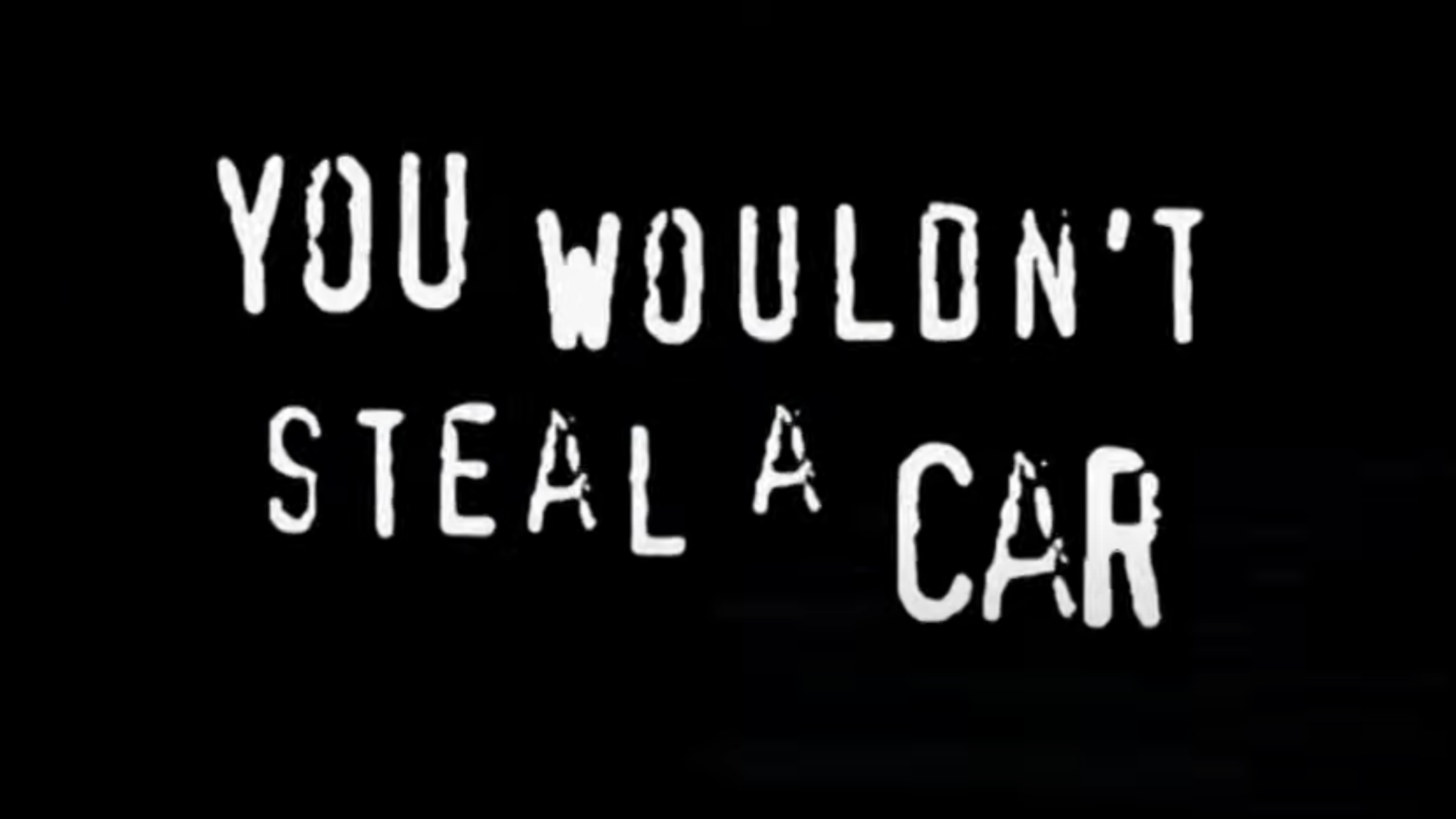
Anyone who went to a cinema or watched a DVD in the mid 2000s will remember the Federation Against Copyright Theft and Motion Picture Association of America's pounding pre-movie lecture. Famous for the line "You wouldn't steal a car," the public service ads compared downloading films to stealing cars, TVs and handbags.
Whether the ad did more to prevent piracy or promote it is in doubt – it taught a lot of people that films could be downloaded and made doing so look quite exhilarating. But the ads gained a place in popular culture, leading to memes and spoofs that persist 20 years on.
Now it turns out that FACT's opposition to piracy may have been a bit selective. Online sleuths have found that the memorable stencil font used in the campaign may have been a free knockoff (they should have chosen from our pick of the best free fonts if they couldn't afford a licence).
Writing on BlueSky, the data reporter and Python programmer Melissa Lewis notes that the You wouldn't steal a car font appears to be FF Confidential, which was created by the Dutch type designer Just van Rossum.
But this font was later cloned without permission and released for free with the name XBAND Rough. This copy is the font that's used in many parodies of the ad. So which one did the original anti-piracy ads use?
Another Bluesky user dug deeper and used FontForge on a PDF from an archived version of the campaign website. And it seems that FACT used the cloned font rather than the licensed one.
The evidence isn't completely conclusive. We don't know whether FACT had a licence to use FF Confidential in other assets in the campaign (the font is now sold by MyFonts by Monotype). Also, copying a typeface is not always illegal depending on how it's done – although it creates a stench of hypocrisy for an anti-piracy campaign.
The case highlights the often complex nature of font licensing and copyright, and the frequent lack of awareness about both. Even among designers, there's often a relaxed attitude to font piracy. It can be hard to get clients to understand why they would need to pay for a typeface, and many don't see the value in a font they think looks similar to a generic option.
Several big brands have been sued by type foundries for using fonts without the correct licence (or any licence), but dealing with copies can be complicated.
In the US, typefaces generally can't be copyrighted because it's difficult for their creators to prove originality when they may look quite similar to others. As a result there are many typefaces that are close copies of existing popular fonts (including the best Star Wars fonts)
But a font – that is the computer file that allows a specific weight of a typeface to be displayed – can be copyrighted as the code makes it identifiable. See our guide to font licensing for designers for more pointers to avoid type headaches.







